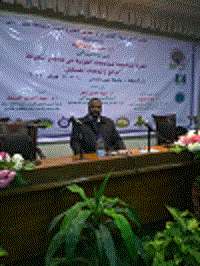Rabbit meat is mostly preferred by consumers owing to its high nutritive value and potential health benefits. However, rabbit meat is commonly more prone to lipid peroxidation during storage, with negative effects on quality traits of meat, due to its elevated level of unsaturation of fatty acids. Moringa oleifera leaves have gained great interest owing to their high nutritional value and low anti-nutritional factors. Moringa oleifera leaves could possibly avoid oxidation damage and exhibit antioxidant activities that can conquer free radicals and reactive oxygen species synthesis. Therefore, the objective of the current study was to evaluate the effects of feeding Moringa oleifera leaves on performance, carcass characteristics, antioxidant capacity, blood biochemical constituents, meat quality, and fatty acids profile of growing rabbits. Moringa oleifera leaves supplementation improved weight gain, feed conversion ratio, antioxidant status, and meat quality characteristics. Dietary Moringa oleifera leaves supplementation enhanced PUFA contents, n-3 fatty acid, crude protein, and color of meat, but lowered the relative content of ether extract of the meat. Our findings suggested that Moringa oleifera could be used at a level of 1.5 g/kg of the growing rabbits’ diets with beneficial impacts on performance and the nutritional value of the meat.

